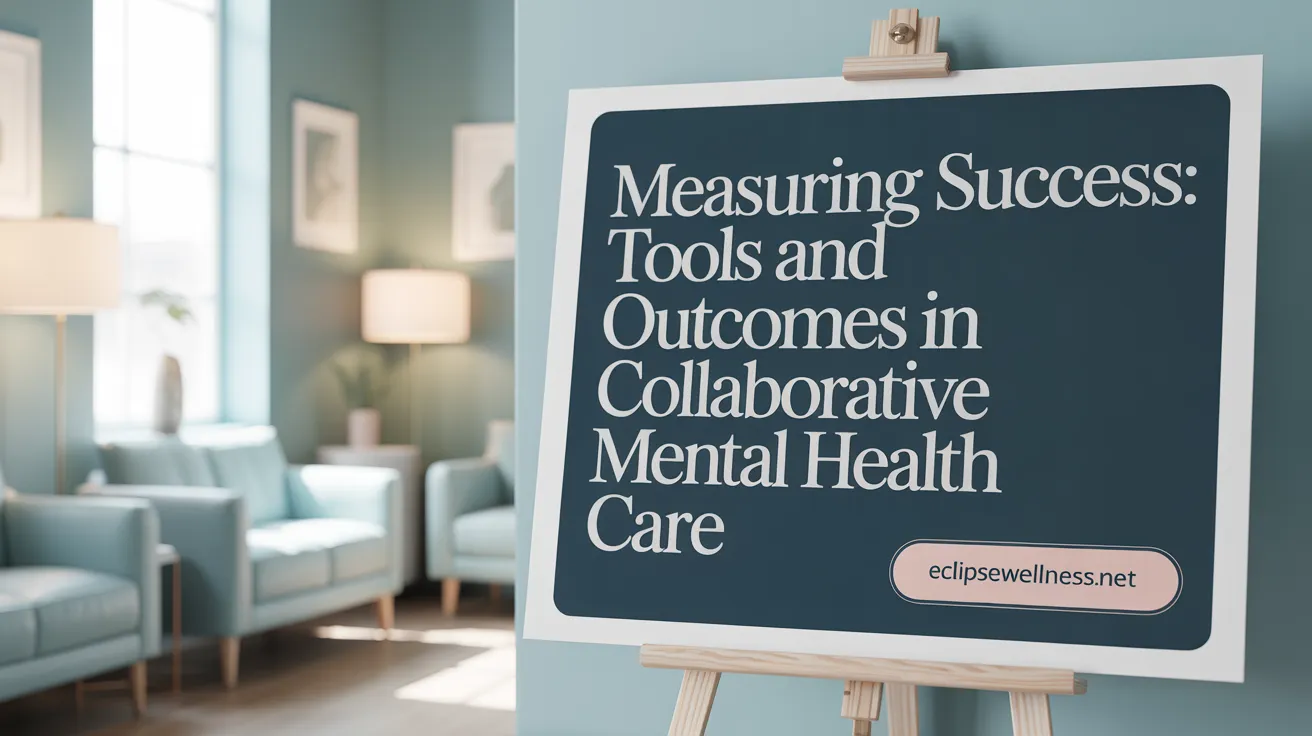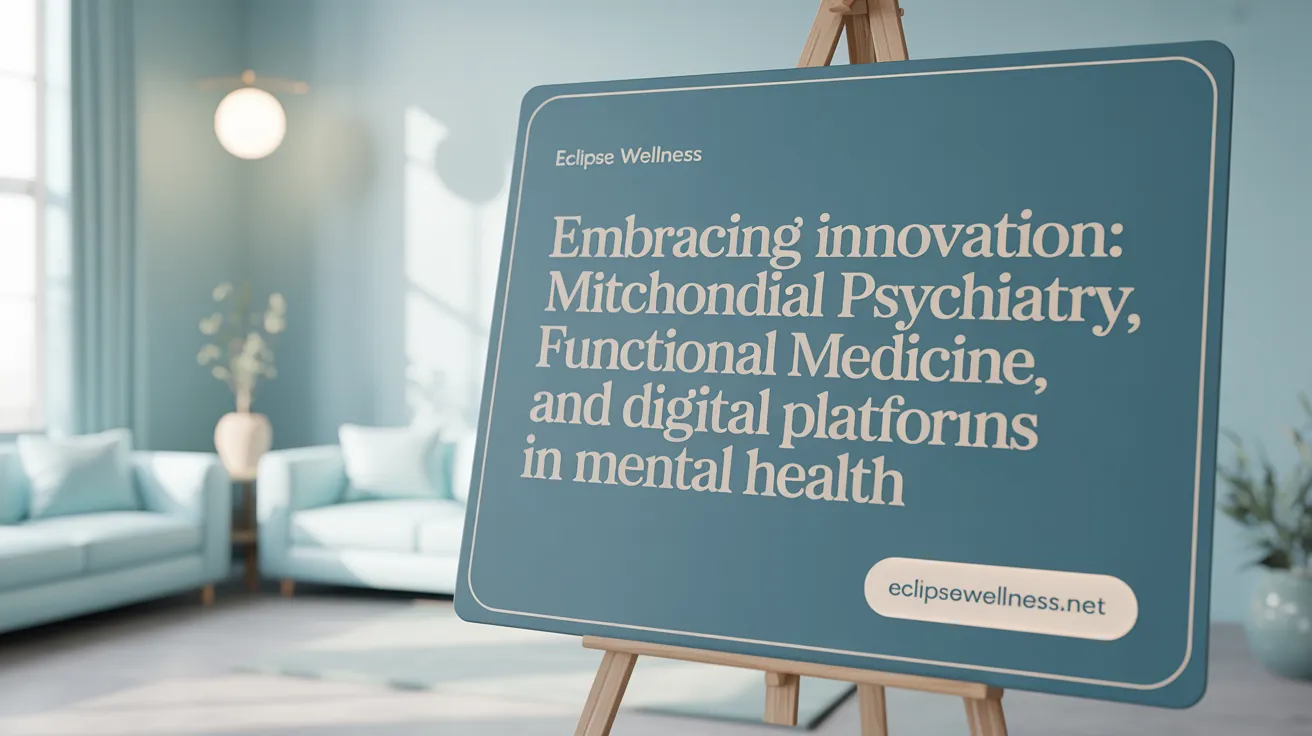Redefining Mental Health Care Through Integration
The paradigm of mental health care is evolving. Traditional treatments focused primarily on symptom relief are now being complemented by integrative practices that treat the whole person—mind, body, and spirit. By combining evidence-based conventional medicine with complementary therapies, this holistic approach fosters personalized care, improves outcomes, and empowers patients. This article explores how integrative practices are enhancing mental health care and shaping its future.
Foundations of Integrative Mental Health Care
What Is Integrative Mental Health?
Integrative mental health is a patient-centered approach that treats the whole person by considering biological, psychological, social, and spiritual factors. It combines conventional therapies such as psychotherapy and medication with evidence-based complementary treatments.
How Does Integrative Mental Health Address the Whole Person?
This approach emphasizes integrative health in mental wellness, acknowledging the complex interactions between mind, body, and spirit. Treatment plans are personalized to meet an individual's unique physical, emotional, mental, and spiritual needs, rather than solely focusing on symptoms.
What Role Do Complementary Therapies Play?
Complementary therapies supported by scientific evidence for complementary therapies are central to integrative mental health care. Examples include mindfulness practices, meditation, yoga, nutritional support, and movement-based therapies like tai chi. These methods enhance conventional treatments by promoting natural healing mechanisms, restoring balance, and improving overall wellbeing.
Integrative mental health emphasizes mental health care integration to deliver comprehensive and effective care tailored to each patient.
Core Components and Therapeutic Modalities in Integrative Practices

Talk Therapy Including Mindfulness-Based Approaches
Talk therapy remains a central pillar in Integrative mental health, particularly mindfulness-based therapies. These focus on fostering present-moment awareness and emotional regulation to reduce stress and prevent relapse of conditions like depression. Trauma-Informed Therapy Approaches ensure a safe environment for healing.
Mind-Body Practices: Yoga, Tai Chi, Meditation
Mind-body techniques such as Yoga, Tai Chi, and Meditation are widely used complementary therapies. They promote relaxation, reduce anxiety and depression symptoms, and enhance overall well-being by activating the parasympathetic nervous system. Regular practice supports emotional regulation and cognitive function.
Nutritional Support and Supplements
Nutritional interventions play a vital role, with evidence supporting Omega-3 fatty acids and depression to reduce depression and anxiety symptoms. Supplementation of B vitamins, magnesium, and vitamin D are commonly used to support mood regulation and cognitive health. These nutrients influence neurotransmitter synthesis and brain inflammation.
Complementary Therapies: Acupuncture, Expressive Arts, Movement Therapy
Additional complementary therapies include Acupuncture, which can reduce anxiety and promote relaxation. Expressive arts therapy offers creative outlets for emotional expression, while movement therapies such as dance provide physical activity that enhances mood and mental resilience. These therapies collectively contribute to personalized, holistic care plans that prioritize whole-person wellness.
Integrative Collaborative Care Models and Interprofessional Collaboration

How are behavioral and physical health services integrated?
Integrative collaborative care models blend behavioral health specialists with primary care providers within the same setting or coordinated plans. This approach treats the person holistically by simultaneously addressing mental, behavioral, and physical health needs. It reduces fragmentation and improves communication amongst healthcare teams, enabling early identification and treatment of conditions like depression and anxiety (Integrated behavioral health care, Integrative collaborative care models, Behavioral Health Integration, Mental health care integration).
What roles do primary care providers and behavioral health specialists play?
Primary care providers often conduct initial screenings and manage common health concerns; they are supported by behavioral health consultants such as psychologists or social workers embedded in primary care clinics. Behavioral health specialists provide targeted interventions including counseling, psychotherapy, and care management. The collaboration allows for efficient referrals, quick interventions, and ongoing patient support (Integrated behavioral health, Collaborative care behavioral health managers, Behavioral health specialists roles).
How is patient progress measured in integrative care?
Tools like the PHQ-9 (Patient Health Questionnaire-9) and GAD-7 (Generalized Anxiety Disorder-7) are widely used in integrative care models to monitor depression and anxiety symptoms, respectively. These validated questionnaires help guide treatment adjustments and track outcomes systematically (Outcome measurement tools PHQ-9 and GAD-7, Measurement-based care).
What are the benefits of collaborative care?
Research demonstrates that collaborative integrative care improves mental health outcomes, increases patient and physician satisfaction, and reduces overall healthcare costs. By combining expertise and coordinating care through multidisciplinary teams, patients experience earlier symptom detection, better adherence to treatment plans, and an overall enhancement in quality of life. Moreover, integrated care contributes to reducing physician stress and workload (Benefits of integrated behavioral health, Collaborative care advantages, Integrative health in mental healthcare).
Together, these models exemplify a person-centered, evidence-based framework that enhances efficiency and effectiveness in mental healthcare delivery, making quality treatment more accessible and comprehensive (Integrated care professional interests, Integrated behavioral health outcomes).
Lifestyle Interventions and Patient Empowerment in Mental Health
How does physical activity benefit mental health?
Regular physical activity is a cornerstone of integrative mental health care. Adults are recommended to engage in at least 150 minutes of moderate exercise weekly, such as brisk walking, biking, or swimming. Exercise not only reduces symptoms of depression by up to 58%, but it also improves cognitive function, boosts self-esteem, and supports emotional regulation. Additionally, physical activity benefits individuals managing anxiety, PTSD, and ADHD by enhancing neuroplasticity and mood stability through Integrative medicine in psychiatry.
Why is restorative sleep important and how can cognitive behavioral therapy for insomnia (CBT-I) help?
Restorative sleep — ideally 7 or more hours per night — is critical for brain health, emotional balance, and overall well-being. Poor sleep quality contributes to mood disorders and cognitive difficulties. Cognitive behavioral therapy for insomnia (CBT-I) is an effective first-line, non-medication treatment that improves sleep hygiene and addresses behaviors and thoughts interfering with rest, offering lasting relief for insomnia and related mental health conditions through Integrative medicine in psychiatry.
How do nutrition and the gut-brain axis influence mental wellness?
Nutrition plays a vital role in mental health. Diets rich in whole foods like fruits, vegetables, fish, nuts, and olive oil (e.g., the Mediterranean diet) protect against depression and anxiety. Nutrients such as omega-3 fatty acids (EPA and DHA), magnesium, and vitamin D support brain function and mood regulation. The gut-brain axis—the interplay between the gastrointestinal microbiome and the brain—also influences mood and cognition. Probiotics and fiber-rich diets foster microbiome diversity, which may alleviate symptoms of anxiety and depression through Integrative medicine in psychiatry.
What mindfulness and self-care practices support mental health?
Mindfulness practices like meditation, yoga, and breathing exercises promote present-moment awareness, reduce stress, and prevent depression relapse. Tailored mind-body techniques activate the parasympathetic nervous system, fostering relaxation and emotional regulation. Self-care strategies include goal setting, practicing gratitude, engaging in hobbies, and maintaining positive social connections, all of which empower individuals to manage mental health proactively (Caring for Your Mental Health, Improve Mental Health).
How do patient motivation and involvement enhance treatment outcomes?
Patient empowerment is central to integrative psychiatry. Encouraging individuals to actively participate in their treatment decisions increases motivation, adherence, and satisfaction with care. Collaborative, personalized treatment plans consider physical, mental, emotional, and spiritual needs, promoting ownership and sustained lifestyle changes that support long-term mental wellness (Integrative Mental Health, Integrative medicine for mental health).
Challenges and Ethical Considerations in Implementing Integrative Mental Health Care
Access Disparities and Socioeconomic Barriers
Access to integrative mental health care often faces obstacles rooted in socioeconomic factors such as income, transportation, and childcare availability. These barriers can disproportionately affect marginalized communities, limiting their ability to receive comprehensive holistic care tailored to their diverse physical, emotional, and spiritual needs. Addressing these disparities is critical to fostering equitable mental health outcomes.
Safety, Regulation, and Informed Consent
Ensuring patient safety remains paramount when integrating complementary therapies with conventional treatments. Many integrative modalities are not regulated uniformly, raising concerns about product purity, practitioner qualifications, and treatment appropriateness. Clear informed consent practices are necessary to educate patients on potential risks and benefits, ensuring transparency and ethical responsibility in care delivery.
Addressing Stigma Through Integration
Integrating behavioral health into primary care settings normalizes mental health treatment by bridging physical and mental health services. This approach reduces stigma by making mental health discussions a routine component of healthcare, encouraging early intervention and empowering patients to actively engage in their wellness journey.
Training and Professional Development for Integrative Mental Health Practitioners
The complex nature of integrative mental health care demands specialized knowledge spanning traditional and complementary therapies. Providers benefit from interdisciplinary training, including master's degrees emphasizing integrative health principles and continuous education on emerging evidence-based practices. This professional development supports safe, effective, and personalized treatment planning.
These challenges and ethical considerations highlight the importance of a coordinated, patient-centered approach to integrative collaborative care models in integrative mental health care that respects diversity, promotes safety, and equips practitioners for comprehensive care provision.
Emerging Trends and the Future of Integrative Mental Health Care

Growth of integrative medicine market and research support
The integrative medicine market is rapidly expanding, valued at approximately $82 billion in 2020 with an expected annual growth rate of 22%. This surge is backed by increased scientific research supporting holistic and complementary approaches within mental health care, showing growing acceptance and efficacy for these methods.
Use of natural supplements and herbal medicines
Natural supplements such as omega-3 fatty acids, St. John’s Wort, magnesium, and vitamin D are increasingly incorporated in complementary and integrative medicine in psychiatry. These supplements target mood regulation and anxiety management and are recognized for their potential to augment conventional treatments. Herbal medicines with bioactive compounds contribute to neurotransmitter balance, supported by clinical evidence in some cases.
Innovations like mitochondrial psychiatry and functional medicine
New fields like mitochondrial psychiatry explore cellular energy dysfunction contributing to psychiatric disorders, leading to novel treatments such as N-acetyl-cysteine supplementation. Functional medicine approaches personalize care based on comprehensive testing of nutrient levels, food sensitivities, and hormonal imbalances, enhancing treatment specificity and effectiveness.
Digital tools and platforms supporting integrative care
Digital platforms, such as communication and scheduling tools, improve coordination among healthcare professionals and support personalized integrative mental health care. These technologies facilitate patient education, engagement, and comprehensive outcome tracking, ensuring treatments remain evidence-based and patient-centered.
Towards a Comprehensive and Compassionate Mental Health Care Landscape
Integrative mental health care represents a promising shift toward comprehensive, compassionate treatment that transcends traditional boundaries. By prioritizing whole-person health, individualizing therapies, and fostering collaboration among healthcare professionals, this approach addresses not just symptoms but root causes of mental health conditions. While challenges remain in accessibility, regulation, and education, ongoing research and growing patient demand highlight its transformative potential. Embracing integrative practices offers a pathway to enhanced mental wellness, improved quality of life, and a more resilient society.
